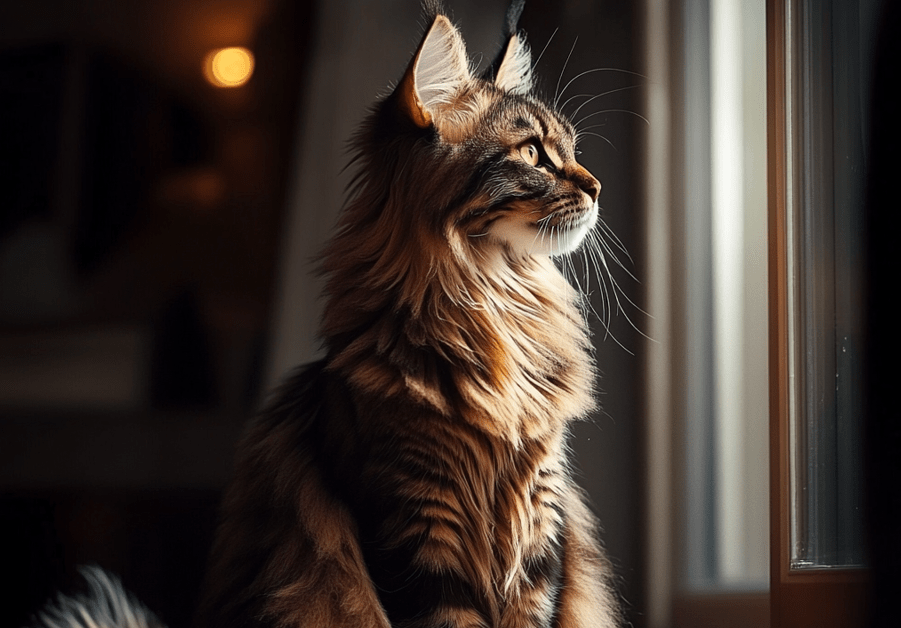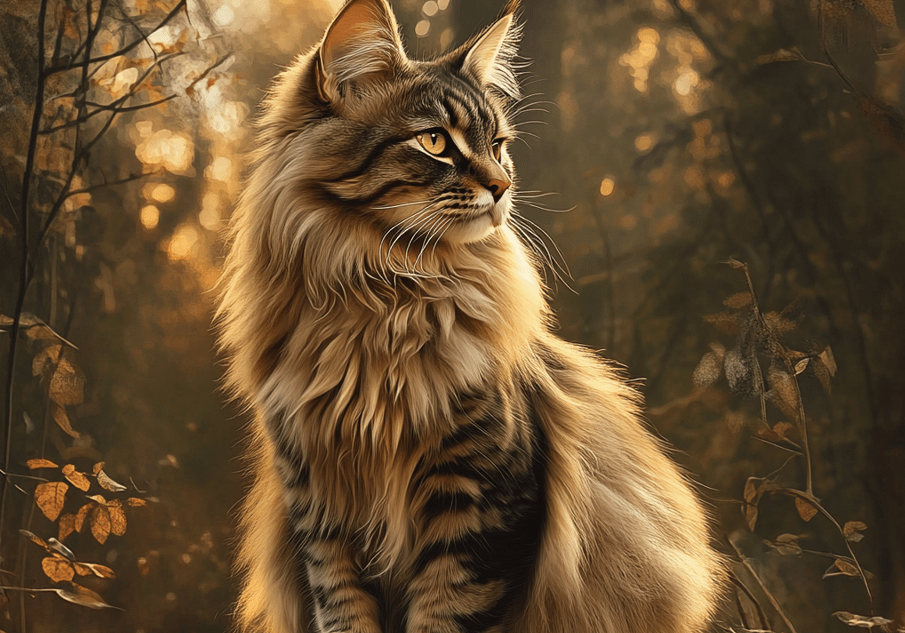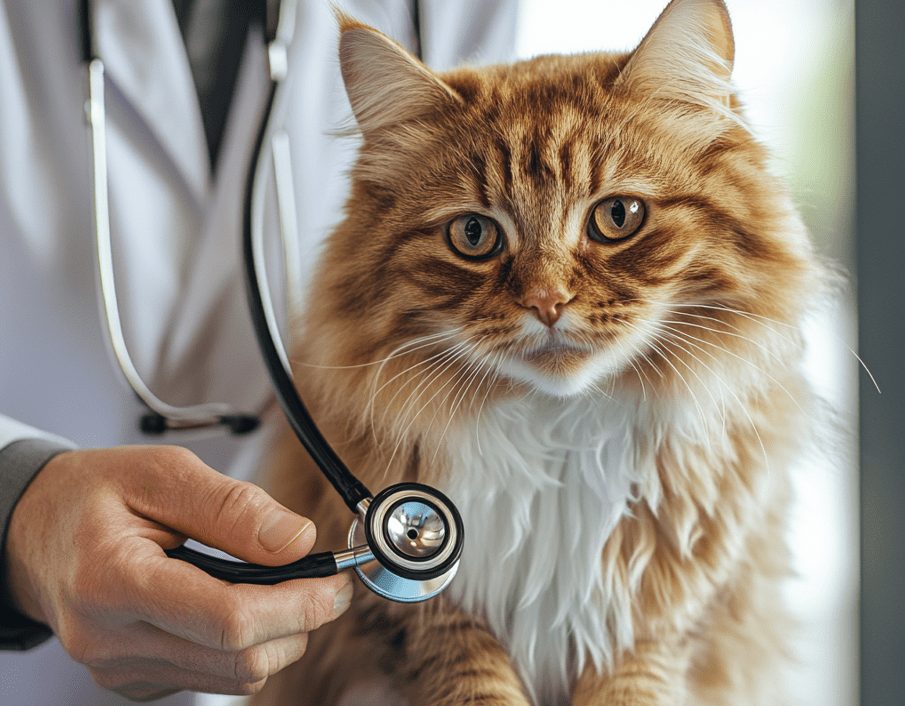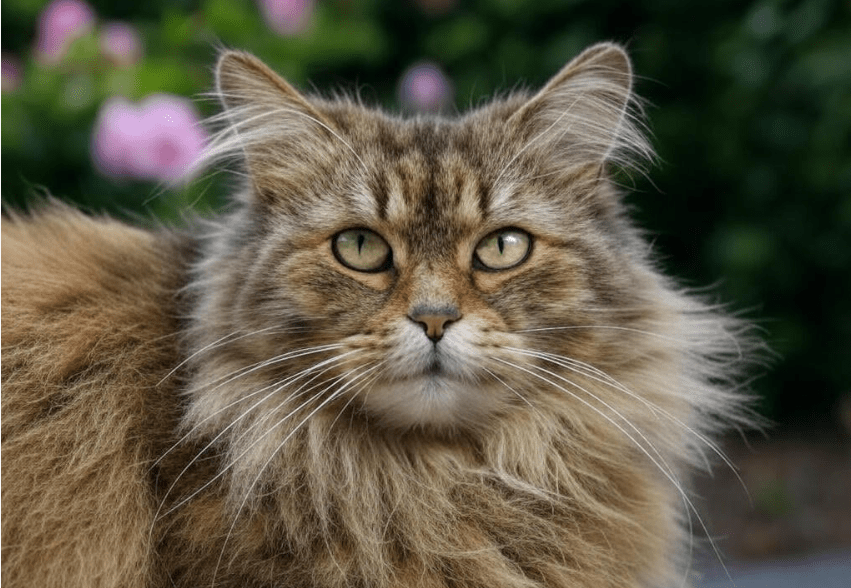
Maine Coon food allergies are a growing concern for owners of this majestic, long-haired breed known for its gentle temperament and large size. These allergies can cause discomfort, health issues, and stress for both the cat and its owner. Recognizing the symptoms of food allergies in Maine Coons and implementing effective diet fixes is crucial for ensuring your feline friend leads a healthy, happy life. This comprehensive guide explores the causes, symptoms, diagnosis, and dietary solutions for Maine Coon food allergies, offering actionable advice to help you manage this condition.
What Are Maine Coon Food Allergies?
Food allergies in Maine Coons occur when the immune system mistakenly identifies a specific ingredient in their diet as harmful, triggering an adverse reaction. Unlike food intolerances, which typically cause digestive issues, allergies involve an immune response that can affect the skin, gastrointestinal system, or even respiratory health. Maine Coons, despite their robust appearance, may be prone to food sensitivities due to genetic predispositions or environmental factors.
Common allergens for Maine Coons include proteins like chicken, beef, fish, or dairy, as well as grains such as wheat or corn. While any cat can develop food allergies, Maine Coons’ unique physiology may make them more susceptible to certain triggers, necessitating careful attention to their diet.
Symptoms of Food Allergies in Maine Coons
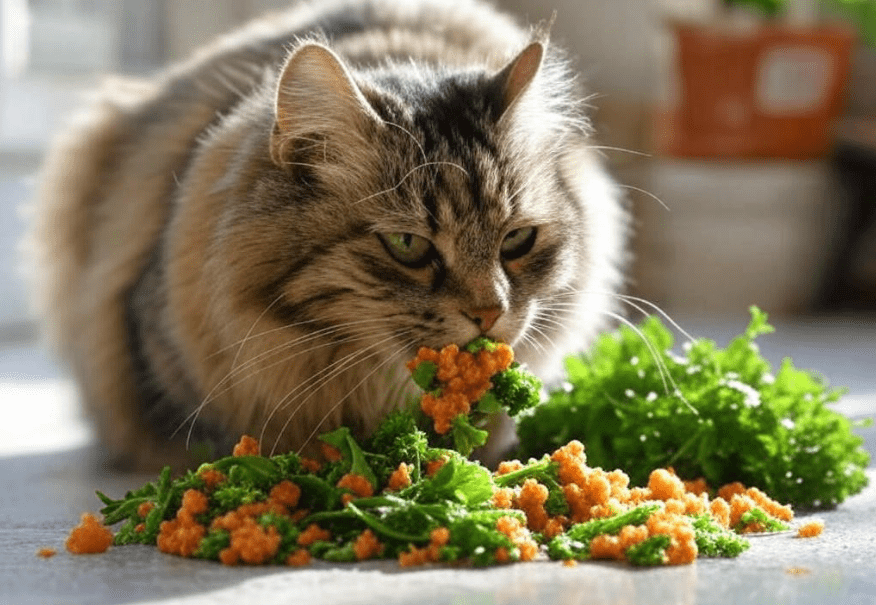
Identifying food allergies in Maine Coons requires vigilance, as symptoms can mimic other health conditions. Here are the most common signs to watch for:
1. Skin Irritations and Itching
Excessive scratching or grooming: Maine Coons with food allergies often itch intensely, leading to hair loss or bald patches.
Red, inflamed skin: Look for redness or sores, especially around the face, ears, neck, or paws.
Ear infections: Chronic ear infections or waxy buildup may indicate an allergic response.
2. Gastrointestinal Issues
Vomiting: Frequent vomiting, especially after meals, can signal a food allergy.
Diarrhea: Loose stools or chronic diarrhea are common symptoms.
Loss of appetite: Some Maine Coons may refuse food due to discomfort.
3. Coat and Fur Problems
Dull or greasy coat: Allergies can affect the quality of a Maine Coon’s luxurious fur.
Excessive shedding: Increased hair loss beyond normal shedding may occur.
4. Respiratory Symptoms
Though rare, some Maine Coons may exhibit sneezing, wheezing, or breathing difficulties due to severe allergic reactions.
5. Behavioral Changes
Lethargy: A normally playful Maine Coon may become withdrawn or less active.
Irritability: Discomfort from allergies can make your cat more aggressive or anxious.
If you notice any of these symptoms, consult a veterinarian promptly to determine whether food allergies are the cause.
Causes of Food Allergies in Maine Coons
Understanding the root causes of food allergies in Maine Coons is essential for effective management. Several factors contribute to the development of allergies:
Genetic Predisposition: Maine Coons may inherit a tendency to develop allergies, making them more sensitive to certain foods.
Dietary Triggers: Common culprits include proteins (chicken, beef, fish), dairy, grains, and artificial additives.
Environmental Factors: Stress, exposure to pollutants, or other allergens may exacerbate food sensitivities.
Overexposure to Ingredients: Feeding the same food for years can increase the likelihood of developing an allergy to its ingredients.
Diagnosing Maine Coon Food Allergies
Accurate diagnosis is critical to addressing Maine Coon food allergies. Veterinarians typically follow these steps:
1. Veterinary Examination
Your vet will perform a physical exam and review your Maine Coon’s medical history to rule out other conditions like fleas, mites, or environmental allergies.
2. Elimination Diet Trial
An elimination diet is the gold standard for diagnosing food allergies. This involves:
1.Feeding your Maine Coon a novel protein (e.g., duck or venison) or hydrolyzed protein diet for 8–12 weeks.
2.Avoiding all other foods, treats, or flavored medications during the trial.
3.Monitoring for symptom improvement, which indicates a food allergy.
3. Food Challenge
After the elimination diet, reintroduce suspected allergens one at a time to identify specific triggers. If symptoms return, the reintroduced ingredient is likely the culprit.
4. Additional Testing
Blood tests, skin tests, or biopsies may be used to rule out other causes of symptoms, though these are less reliable for food allergies.
Diet Fixes for Maine Coon Food Allergies
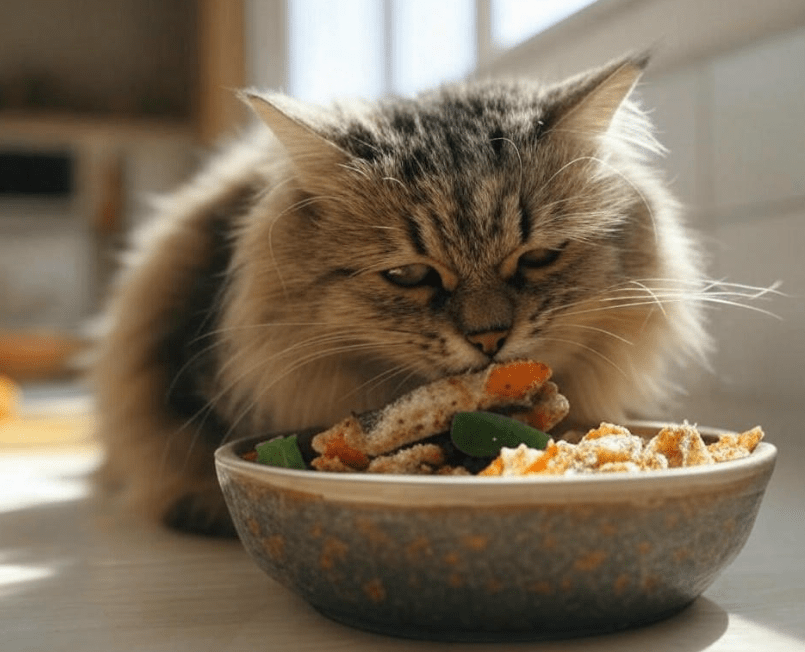
Once food allergies are confirmed, adjusting your Maine Coon’s diet is the primary treatment. Here are effective strategies to manage and prevent allergic reactions:
1. Switch to a Hypoallergenic Diet
Hypoallergenic diets are specially formulated to minimize allergic reactions. Options include:
Novel Protein Diets: These contain proteins your Maine Coon has not been exposed to, such as rabbit, kangaroo, or venison.
Hydrolyzed Protein Diets: These break down proteins into smaller molecules that are less likely to trigger an immune response.
Grain-Free Diets: If grains are a trigger, opt for grain-free formulas, but ensure they meet nutritional standards.
2. Choose High-Quality, Limited-Ingredient Foods
Limited-ingredient diets (LIDs) contain fewer components, reducing the risk of exposure to allergens. Look for:
1.Single protein sources (e.g., turkey or salmon).
2.Minimal additives, artificial flavors, or preservatives.
3.High-quality brands that prioritize natural ingredients.
3. Incorporate Wet Food
Wet food can be beneficial for Maine Coons with food allergies because:
1.It’s often lower in carbohydrates and fillers.
2.It provides hydration, supporting overall health.
3.Many wet foods are formulated for sensitive stomachs or allergies.
4. Avoid Common Allergens
Steer clear of ingredients known to trigger allergies in Maine Coons, such as:
1.Chicken, beef, or fish (if identified as allergens).
2.Dairy products, which many cats cannot digest.
3.Wheat, corn, or soy, which are common fillers.
5. Introduce Probiotics and Supplements
Probiotics can support gut health, which may reduce allergic responses. Omega-3 fatty acid supplements can also improve skin and coat health, alleviating itching and inflammation.
6. Maintain Consistency
Once you find a diet that works, stick with it. Avoid giving treats, table scraps, or flavored medications that could reintroduce allergens.
Best Foods for Maine Coons with Food Allergies
Selecting the right food is critical for managing Maine Coon food allergies. Here are some veterinarian-recommended options (always consult your vet before making changes):
Royal Canin Veterinary Diet Hydrolyzed Protein: A hydrolyzed protein formula designed for cats with food sensitivities.
Hill’s Prescription Diet z/d: Clinically proven to reduce skin and digestive symptoms caused by food allergies.
Natural Balance L.I.D. Limited Ingredient Diets: Offers novel protein options like duck or venison.
Instinct Limited Ingredient Diet: Grain-free, single-protein wet and dry foods for sensitive cats.
Blue Buffalo Basics Limited Ingredient Diet: Formulated with minimal ingredients and novel proteins like turkey or fish.
When choosing food, prioritize brands that meet AAFCO (Association of American Feed Control Officials) nutritional guidelines to ensure your Maine Coon receives balanced nutrition.
Homemade Diets for Maine Coons with Food Allergies
Some owners prefer preparing homemade meals to control ingredients. However, homemade diets require careful planning to avoid nutritional deficiencies. Follow these tips:
1.Work with a veterinary nutritionist to create a balanced recipe.
2.Use novel proteins like rabbit or quail if commercial options are limited.
3.Include essential nutrients like taurine, which is critical for heart and eye health.
4.Avoid seasoning, oils, or ingredients toxic to cats (e.g., garlic, onions).
Preventing Food Allergies in Maine Coons
While not all food allergies can be prevented, these strategies can reduce the risk:
Rotate Protein Sources: Occasionally switch between high-quality protein sources to prevent overexposure.
Feed a Balanced Diet: Ensure your Maine Coon’s food meets all nutritional needs to support immune health.
Monitor for Early Signs: Address mild symptoms promptly to prevent chronic issues.
Limit Treats: Opt for hypoallergenic treats or use small portions of their regular food as rewards.
When to Seek Veterinary Help
If your Maine Coon’s symptoms persist despite dietary changes, seek veterinary care immediately. Chronic allergies can lead to complications like:
1.Secondary skin infections from excessive scratching.
2.Weight loss or malnutrition from gastrointestinal issues.
3.Behavioral changes due to prolonged discomfort.
Your vet may recommend additional treatments, such as antihistamines, steroids, or immunotherapy, to manage severe allergies.
Living with a Maine Coon with Food Allergies
Managing Maine Coon food allergies requires patience and commitment, but the rewards are worth it. A well-managed diet can significantly improve your cat’s quality of life, restoring their energy, coat luster, and playful personality. Here are some final tips for success:
Keep a Symptom Journal: Track your Maine Coon’s symptoms, diet changes, and progress to share with your vet.
Stay Informed: Research reputable sources for the latest on feline nutrition and allergies.
Be Patient: Finding the right diet may take time, but persistence pays off.
Conclusion
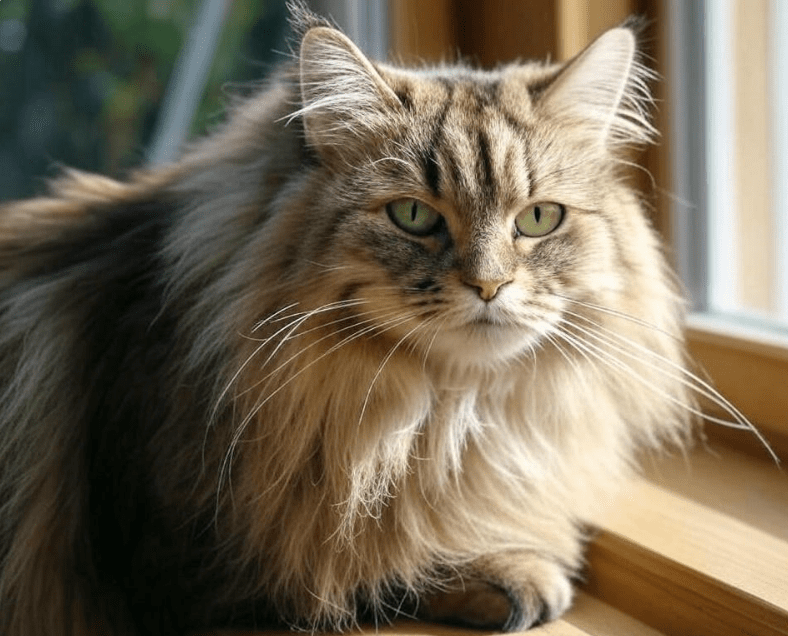
Maine Coon food allergies can be challenging, but with the right knowledge and approach, you can help your cat thrive. By recognizing symptoms early, working with a veterinarian to identify triggers, and implementing tailored diet fixes, you can alleviate discomfort and ensure your Maine Coon enjoys a long, healthy life. Whether you opt for commercial hypoallergenic foods or carefully crafted homemade meals, prioritizing your cat’s nutritional needs is key. Stay vigilant, consult professionals, and provide the love and care your Maine Coon deserves.
This guide aims to be your go-to resource for managing Maine Coon food allergies. If you have further questions or need personalized advice, reach out to your veterinarian or a feline nutrition expert.

